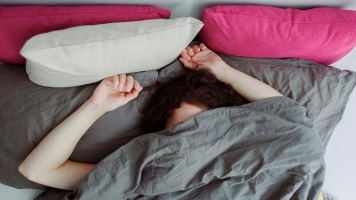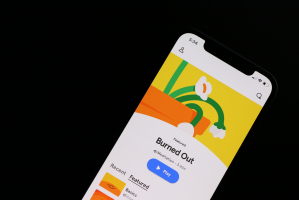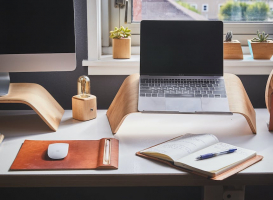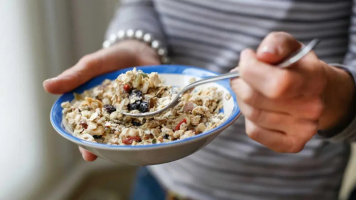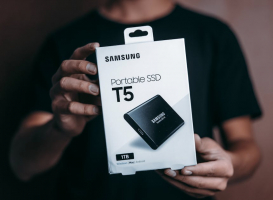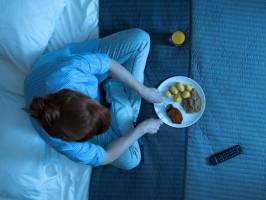Top 10 Best Ways to Sleep Better with Ulcerative Colitis
It might be challenging to get to sleep and stay asleep because of the symptoms of ulcerative colitis (UC), which include nausea and pain. In fact, a 2014 ... read more...study discovered that people with UC and other types of inflammatory bowel disease (IBD) slept only 4.5 hours on average every night, frequently due to pain, bloating, anxiety, and the need to use the bathroom. The following strategies will help you in sleeping better with UC.
-
The benefits of different sleeping positions differ. You might need to adjust your position if you're having trouble managing your pain or other medical issues. And while changing your regular sleeping position might not be something you can do in a single night, it can be worthwhile to try.
Depending on your symptoms or which side of your digestive tract is most irritated, certain sleeping postures can make UC flares worse. If you experience pain when sleeping, consider switching to your back or another side and see if that helps. To keep track of what's working, you can think about starting a sleep journal in which you record your symptoms and sleeping position.
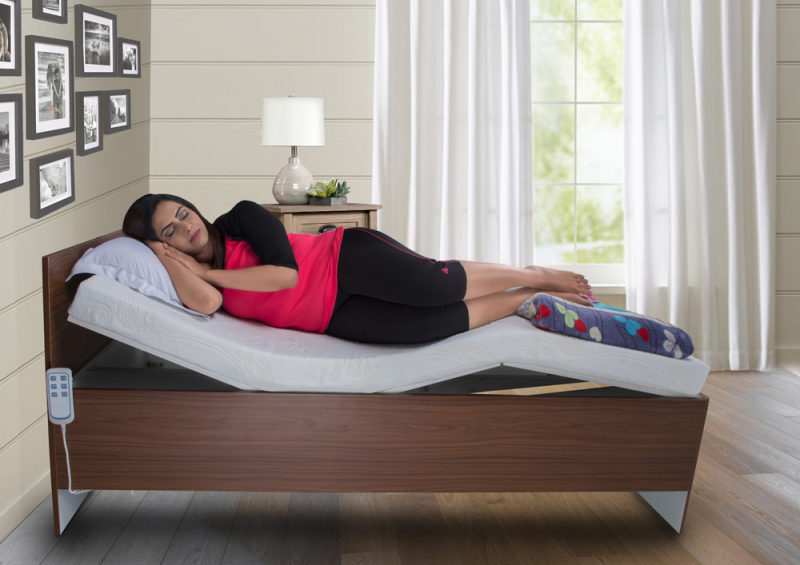
Try different sleep positions 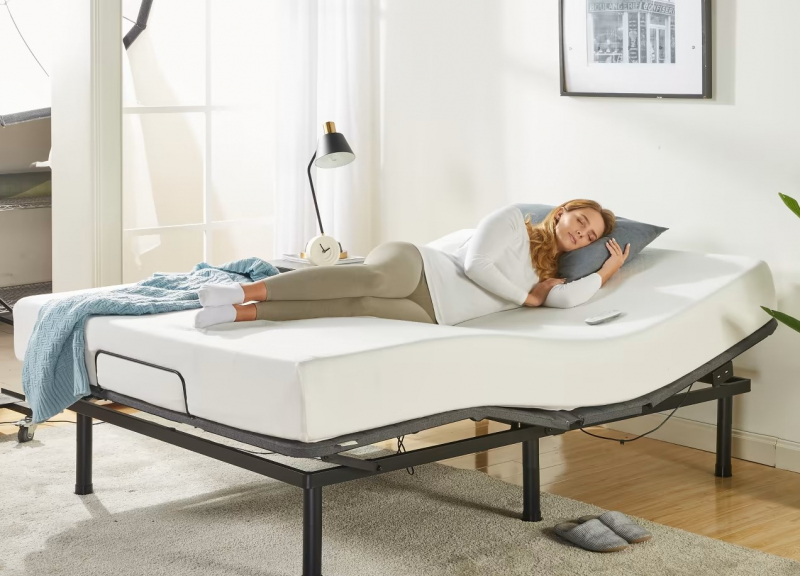
Try different sleep positions -
Ulcerative colitis treatment usually involves either drug therapy or surgery. Several categories of drugs may be effective in treating ulcerative colitis. But some UC medications may make it harder to fall asleep. Research from 2020 indicates that corticosteroids, which are frequently used to manage UC flares, can also affect sleep.
Another treatment option that doesn't interfere with your sleep can be suggested by a medical professional. Or you can talk to your doctor about one of the following choices if your UC medication is affecting your sleep:
- Switching treatments
- Adding something to help with sleep
- Changing the time of day you take your medication
- ...

Consider your medications 
Consider your medications -
Insomnia and other sleep issues are not something you have to handle on your own. To control UC symptoms and improve your quality of sleep, a medical expert can advise you on lifestyle modifications and, if necessary, prescribe medications.
For instance, if you wake up at night with cramps or abdominal pain, your doctor may advise you to take a painkiller like an acetaminophen. Or they could suggest an antispasmodic to treat your cramps. A doctor might also advise taking an antidiarrheal medication before bed if you worry about a bathroom emergency keeping you up at night, particularly if you had a big meal or had dinner somewhere else. In general, you might find this useful to keep track of your UC symptoms, especially those that interfere with your sleep, so you can talk to a doctor about them. Then mutually come up with a solution after identifying the cause of what's keeping you up at night.
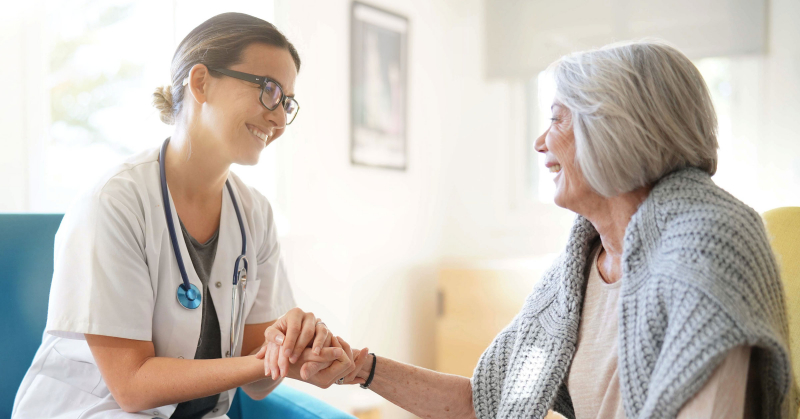
Talk with a healthcare professional 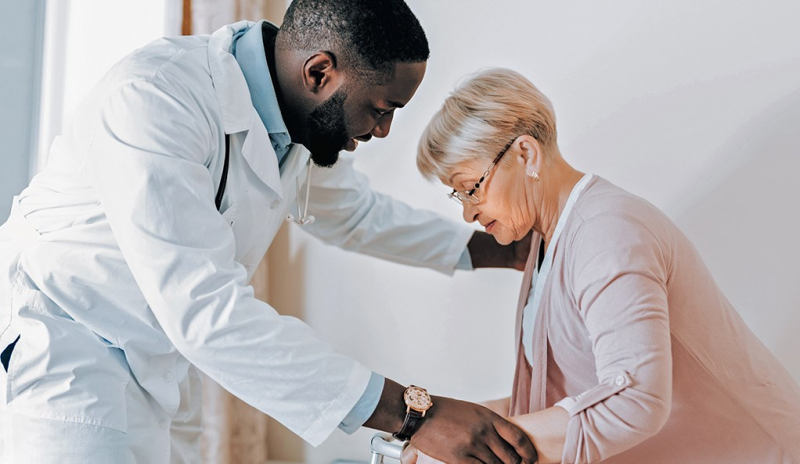
Talk with a healthcare professional -
The evidence on the negative consequences of eating at night on health is conflicting. However, you could find it beneficial to eat dinner a bit earlier if you find that having a substantial meal before bed affects your sleep (for example, by making you feel the urge to use the restroom in the middle of the night).
The Crohn's and Colitis Foundation advises against consuming big meals or alcoholic beverages right before night. Consider a small snack that is free of common UC triggers if you feel hungry late at night. These catalysts consist of:
- Lactose
- Sugar
- Insoluble fiber
- Caffeine
- Spicy ingredients
- ...
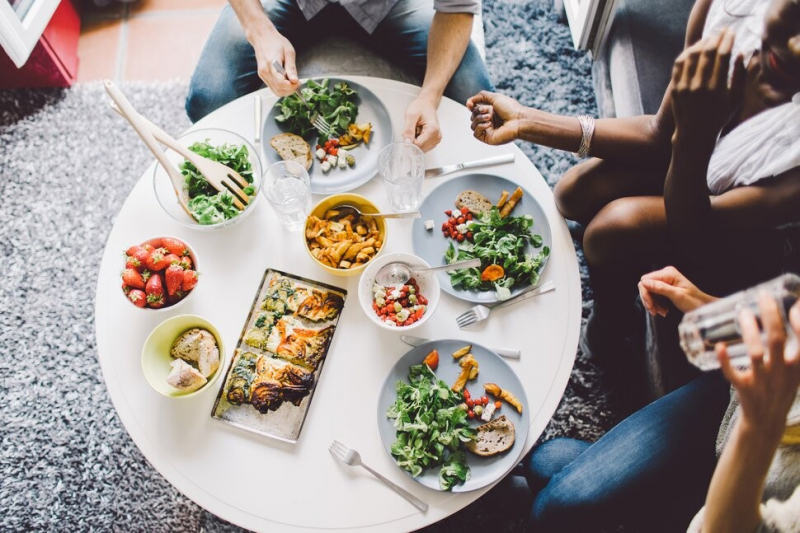
Eat an early dinner 
Eat an early dinner -
A connection between UC and mental health issues that might also affect your sleep has been shown by research. Poor sleep quality and depression were linked in a 2018 research of 47 UC patients. Additionally demonstrated to interfere with sleep is anxiety related to UC.
Sometimes it's difficult to tell which came first between physical symptoms and mental health issues, similar to the chicken or the egg problem. However, it also suggests that improving your ability to deal with mental health issues may help you sleep better. Recommend consulting a professional, such as a therapist, for help if you're dealing with anxiety, depression, or any other mental health issue. They can help you in coping, which might also lead to better sleep.
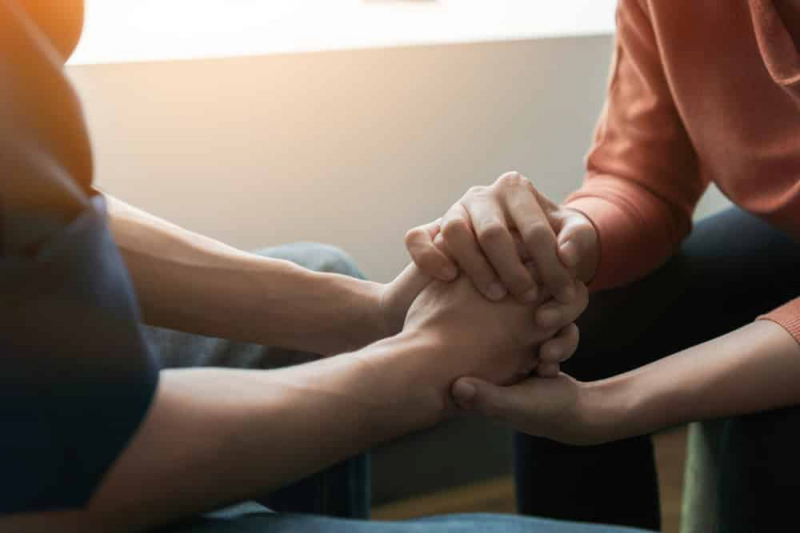
Treat your mental health 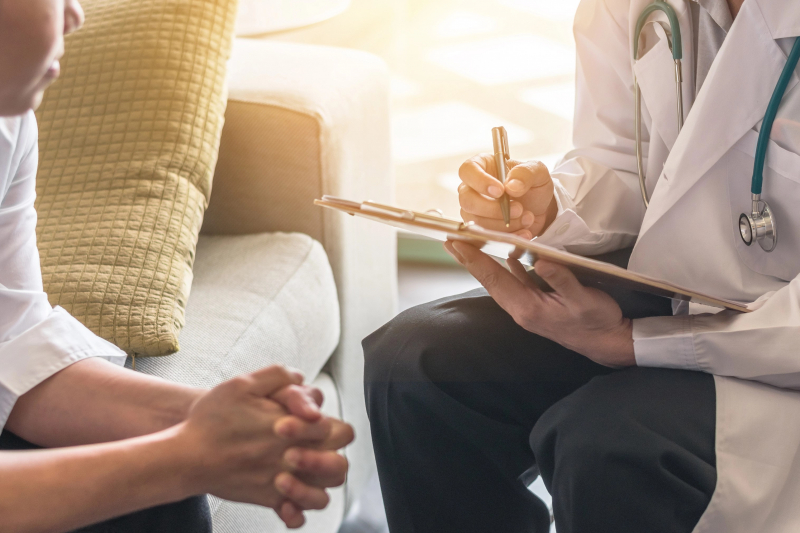
Treat your mental health -
Healthy sleeping habits are referred to as sleep hygiene. Due to the importance of getting enough sleep for your mental and physical well-being as well as your overall quality of life, excellent sleep hygiene is important. You can sleep better by developing consistent sleeping habits.
The following behaviors are recommended, according to the Centers for Disease Control and Prevention (CDC):- Keep your bedroom quiet, cool, and dark.
- Avoid big meals, alcohol, and caffeinated drinks close to bedtime.
- Stick to a consistent sleep schedule (even on weekends).
- Find time to exercise during the day.
- Get rid of electronic devices, including smartphones, from the bedroom.
- ...
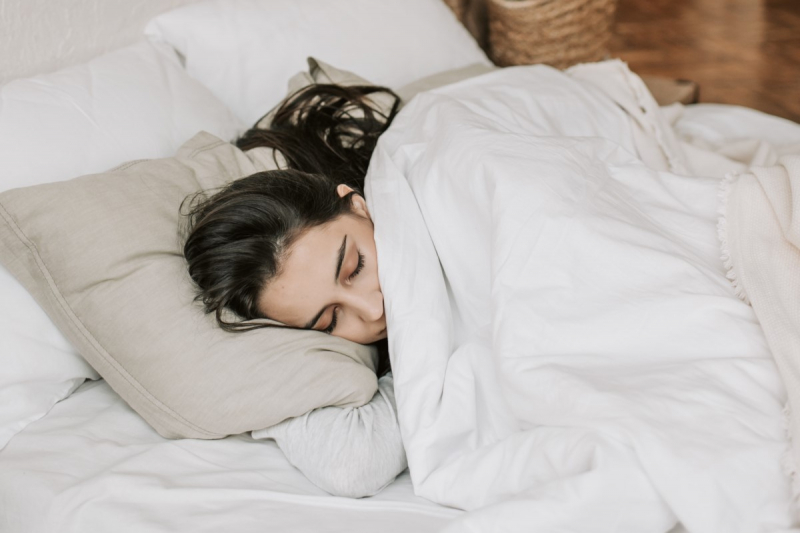
Practice good sleeping habits 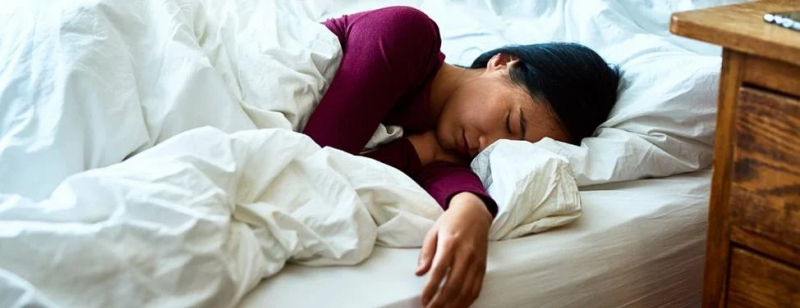
Practice good sleeping habits -
Doing meditation for insomnia can relieve anxiety, depression, and stress, helping you to sleep better. A review of over 200 studies showed that meditation can have a positive effect on mental health.
Similarly, people with UC may benefit in a variety of ways from meditation, including improved sleep. According to a 2018 meta-analysis, mindfulness meditation, in particular, has been demonstrated to improve some sleep disturbances. Additionally, as anxiety is a significant cause of sleep issues for those who have UC, it might help reduce anxiety. According to a 2010 meta-analysis, mindfulness-based therapy, which includes meditation, helps in the reduction of anxiety symptoms. It can then be simpler to go to sleep as a result.
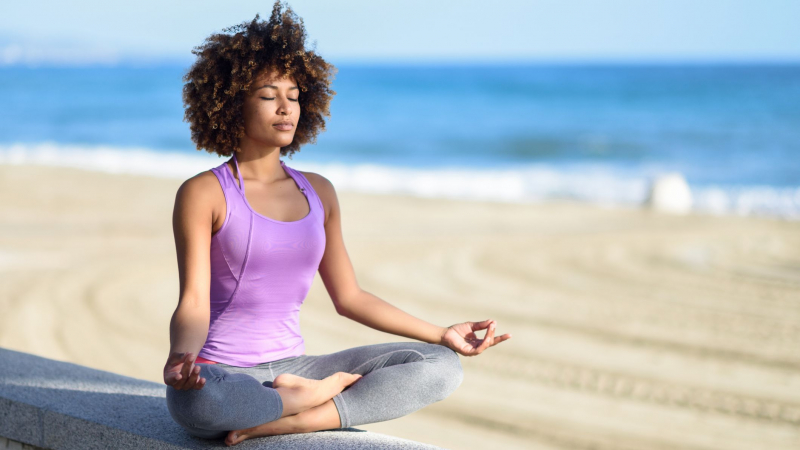
Meditate 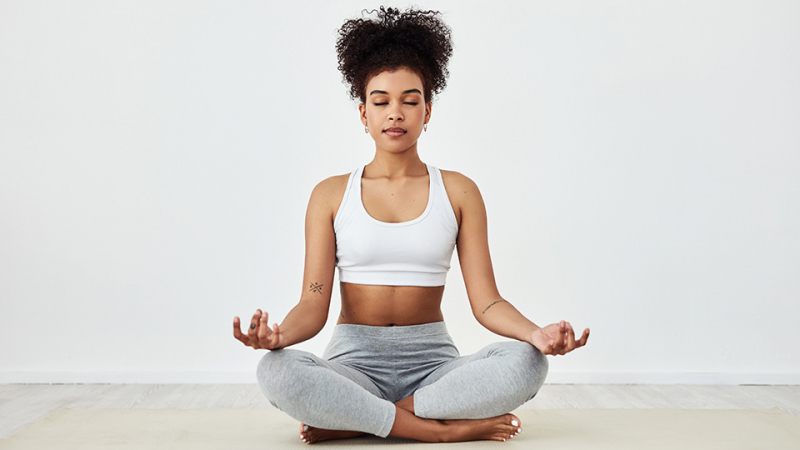
Meditate -
Consider applying a heating pad to your stomach if UC cramps are making it difficult for you to sleep. If you are experiencing pain due to ulcerations or inflammation, you may want to take a heating pad or a warm pillow.
Abdominal cramps can be effectively treated with hot water bottles or electric heating pads. Your stomach receiving the pressure and heat from a heating pad may help to ease cramping or gastrointestinal discomfort. Think about using an electric heating pad with a timer. You can lower the danger of burns by setting it to turn off shortly after you go to sleep in this manner.
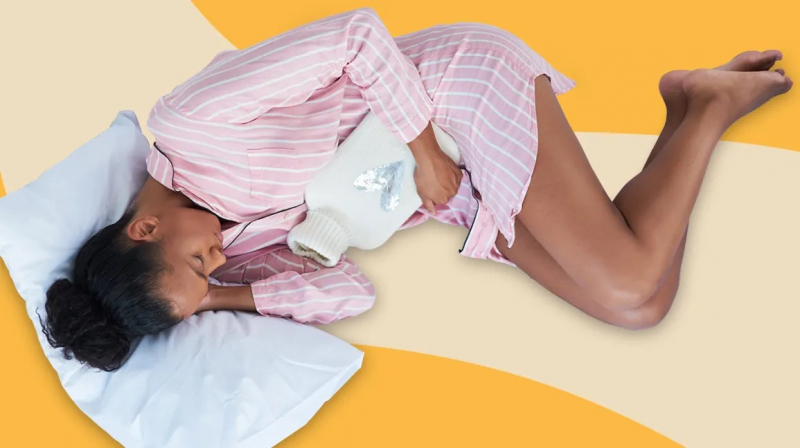
Use a heating pad 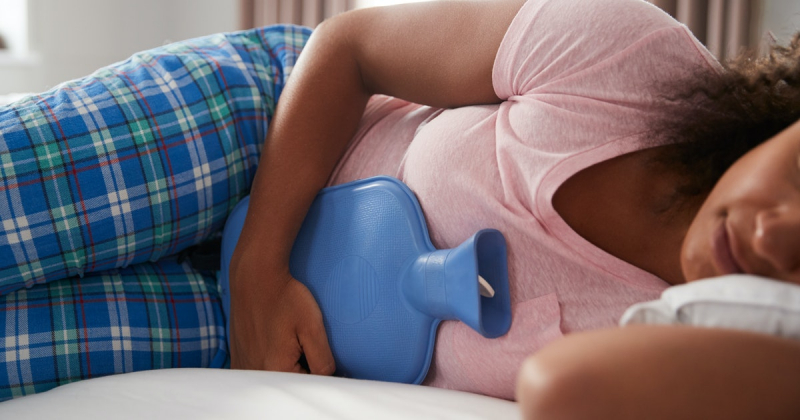
Use a heating pad -
Studies have found consistently rising rates of sleep aid use, with one study showing that around 3% of adults had used a prescription sleep medication in the month prior. Many over-the-counter (OTC) sleep aids are offered, however, not all of them are suitable for those who have UC.
For instance, magnesium is sometimes touted as a sleep aid. However, a 2015 study found that it may cause gastrointestinal symptoms such as diarrhea, vomiting and nausea. You should keep in mind that every sleep aid has potential benefits and downsides, and it is important for individuals to be informed about their treatment options and talk with a doctor about the best option in their personal situation. And because they may also be addictive, before using any other over-the-counter sleeping aids, consult a doctor first.

Be wary of sleep aids 
Be wary of sleep aids -
It can be beneficial to take a quick power nap to relax and rejuvenate. Additionally, quick naps boost mental alertness. However, getting more rest can make you feel sleepy and make it hard to sleep at night.
Limit your nap to 10 to 20 minutes. The longer you nap, the more likely you are to feel groggy afterward. Young adults, however, may be able to tolerate longer naps. After 3 p.m. naps can keep you from sleeping through the night. The optimum time of day to nap might also depend on individual factors such as how much sleep you need when you go to bed, how old you are, and whether you take any medications.
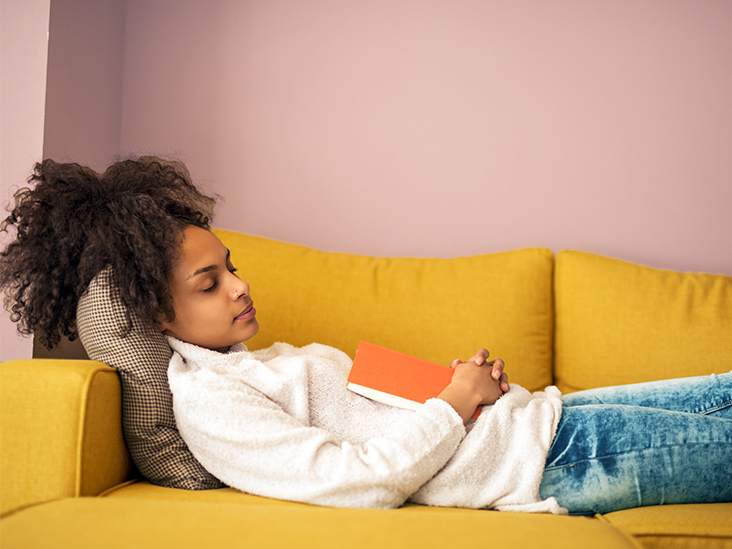
Keep daytime naps short 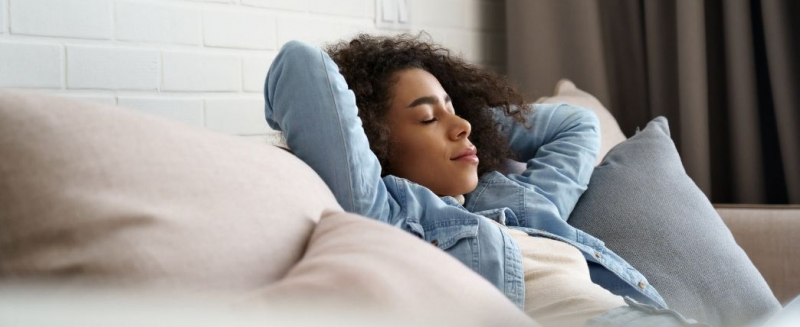
Keep daytime naps short













